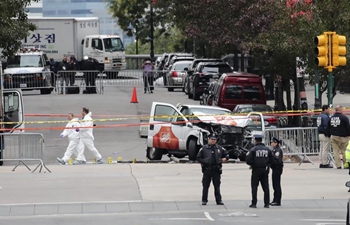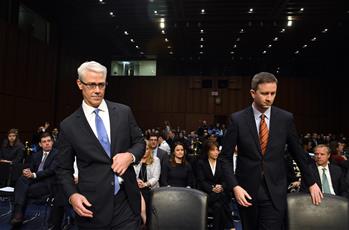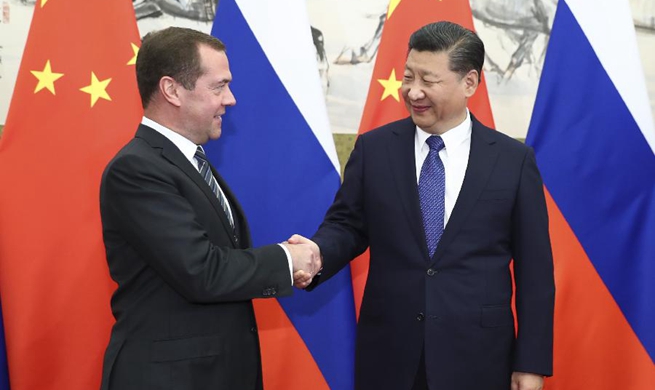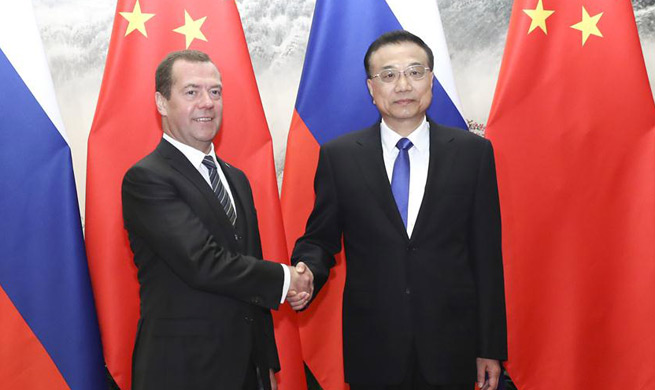WASHINGTON, Nov. 1 (Xinhua) -- The United States voted against a UN resolution condemning America's trade embargo against Cuba on Wednesday, a latest move underscoring the new Cuba policy launched by the Trump administration to deviate from the Obama legacy.
The resolution was overwhelmingly approved in the UN General Assembly by a vote of 191-2, with only the United States and Israel voicing opposition.
The voting result is the same as that in 2015 though differing from last year's abstention by the Obama administration, which emphasized a thaw in bilateral relations between the two former Cold War foes.
U.S. Ambassador to the United Nations Nikki Haley blamed Havana for the embargo, saying prior to the vote that the United States will continue to oppose the resolution "as long as the Cuban people continue to be deprived of their human rights and fundamental freedoms."
Cuban Foreign Minister Bruno Rodriguez Parrilla fought back, saying the U.S. blockade is "a flagrant, massive and systematic violation of the human rights of all Cubans" and qualifies as "an act of genocide."
One day earlier, the Trump administration notified its intention to vote against the resolution which called for an end of the trade embargo imposed in 1959 by the United States.
Accusing Cuba of engaging in human rights abuses, U.S. State Department Spokeswoman Heather Nauert told a press briefing that U.S. opposition underscored the new Cuba policy initiated by the Trump administration to put greater emphasis on advancing human rights and democracy in Cuba.
The past U.S. administrations perhaps "have turned and looked the other way," said Nauert.
The new approach announced by U.S. President Donald Trump in mid-June imposed restrictions on Americans' travel to Cuba and U.S. business with Cuban military.
Meanwhile, it kept the restoration of normal U.S.-Cuban diplomatic ties untouched and retained the U.S. embassy in Cuba.
Experts saw Trump's new directive as making "moderate" changes to his predecessor's policy, rolling back part of Obama's content while keeping most of it intact.
Therefore, the impact of Trump's new rules on U.S.-Cuba relationship is believed to be limited.
However, tension between the two former Cold War enemies has been growing in recent months over the alleged "acoustic attacks" against U.S. diplomats in the embassy in Havana.
In early October, the U.S. government expelled 15 Cuban officials from the Cuban embassy in Washington as a response to the Cuban authorities' "failure" to "take appropriate steps to protect our diplomats."
Havana later denounced the expulsions as "unjustified" and accused the United States of insufficient cooperation and politicizing the issue that is still under investigation.
Cuban officials, who were in charge of the ongoing investigation into the incidents, announced last week that preliminary results showed there were no such alleged attacks.
At Tuesday's briefing, Nauert said voting against the UN resolution was "a separate matter" from the alleged "acoustic attacks."
















